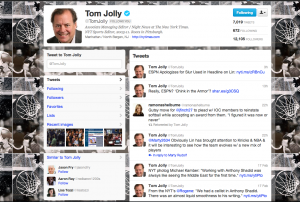
I had the pleasure of interviewing Tom Jolly last week as a part of our ‘How to Get a Job in Sports’ series. Tom is currently the Associate Managing Editor of the Nightly News at the NY Times. Previous to this role, Tom was the Sports Editor at the NY Times. I actually first met Tom at a Sports Networking event back in Sept 2009 in New York hosted by Russell Scibetti (TheBusinessOfSports.com).
It was truly a pleasure to reconnect with Tom over 2 years later. As I mentioned to him in the interview, he was one of those people that I thought were “unreachable” before I started to venture into the world of social media and sports. I frequently reference my own meeting with him as an example for others looking to break into the sports industry that social tools like Twitter and Linkedin help break down barriers and give you access to anyone you might want to meet.
Even though Tom’s current role with the NY Times doesn’t have him directly involved in sports, he is still regarded as one of the most respected sports professionals on Twitter. In this interview, I talk to Tom about his path to his current role, things that he’s learned along the way, how social media has impacted his own career and advice that he has for others interested in a sports journalism career. (We also had an interesting discussion about the latest media buzz in NYC regarding Jeremy Lin)
To connect with Tom Jolly online visit:
- http://twitter.com/tomjolly
- http://www.linkedin.com/in/tomjolly
- http://www.flickr.com/photos/taj55/ – we also briefly discussed Tom’s passion for photography. Check out some of his photos…..he definitely has some skills behind the camera!!
How To Land A Job In Sports with Tom Jolly Interview
Hey everyone it’s Trevor Turnbull here with Sports Networker and I’m really excited to introduce all of you to Tom Jolly. How’s it going Tom?
I’m doing great. How are you Trevor?
I’m excellent. Thank you. For those of you that aren’t familiar with Tom, maybe you could tell us your role again?
Associate Managing Editor at the New York Times.
There we go. Previously the Senior Sports Editor with the New York Times correct?
Correct.
Got it. There we go.
So I actually met Tom, we were just talking about this, about two and a half years ago at a sports networking event that was hosted by Russell Scibetti. thebusinessofsports.com for those of you familiar with Russell. We actually haven’t connected since so it really is a thrill for me to be able to chat with Tom on this interview. I mentioned to him that I use a photo we took together in a lot of my presentations talking about my own transition into the sports industry so Tom it’s a thrill to chat with you here today.
I’m glad to reconnect with you as well.
Excellent. So Tom lets talk about your rise into this industry and into the role that you’re currently in here. Maybe you can take us back a few years and talk about how you got into the journalism space.
Sure. I actually majored in it in college and, it seems like forever ago; but I started at a little tiny paper in central Ohio, a 9,000 circulation paper as a reporter covering city news. I went on from there to Annapolis Maryland, a little bigger paper, again covering city news and then became an editor and ultimately moved into sports there. But again it was a 35,000 circulation paper. I was there for about three years and went on to Pittsburgh, stayed in sports then and became the deputy sports editor in Pittsburgh at the Pittsburgh Press. Unfortunately we were ahead of our time and that paper went out of business in 1993.
I was lucky enough to catch on at the New York Times, which was expanding it’s sports coverage, came in as a copy editor there and worked my way up to assistant sports editor. I then went over to the news side on the news desk and we were responsible for page A1. That just happened to be the Bush/Gore presidential campaign that led to the craziness of not being able to declare a winner for four weeks or whatever and 9/11 unfortunately and all kinds of other amazing events. So that was an incredibly news-packed three-year span. Then in 2003 I became sports editor at The Times and I held that job for eight years. And that was a big time of transition too for other reasons. Mostly because of the growth of the Web and Facebook and Twitter and all of the other social networking elements that became such a key part of what we were doing.
Yeah, no kidding. I was actually pulling up all of the different things I could about you background today that I could; your Twitter account and your LinkedIn profile and everything else and I actually came across an interview that you did with Lewis back in October of 2009. I think it was in Cleveland actually.
That’s right, yep.
Yeah. It was actually leading up to the Olympics that were here in Vancouver in February 2010. You were talking about those changes that were happening at The Times and all of the cool new technologies that were coming out that were top secret and couldn’t be revealed at the time. Just that changing landscape and how your subscribers online, or viewers online, was far exceeding the amount of people that were actual subscribers to the physical newspaper correct?
Absolutely and even more so today that’s the case.
So you obviously have a wealth of experience in a lot of different areas and you’re doing something that you love every single day which is great. Is there anybody in particular along that path that helped mentor you or kind of helped get you to where you are today?
I’ve been lucky that along my career I’ve encountered some really great people almost every step of the way that have encouraged me and talked about doing new things and trying to push the envelope as much as you could within the bounds of what were doing. I think that helped inspire me to be open to [Twitter]. We were the first department at The Times to embrace Twitter in a big way and start using it to push out our stories and communicate with our readers in a way that was impossible before. That’s, I think, one of the great things about it. You can interact with people. It used to be that you had a static newspaper, it would drop on somebody’s doorstep, you had no idea if people were reading it, what they were reading and the only communication you had was if somebody typed up a letter and put it in the mail. Which was was asking a lot. Now you can interact with people so simply. Sometimes they can be abusive I guess but that’s rare, I find. Especially if somebody says something kind of nasty and you respond saying, “hey, I’m sorry you feel that way,” they’re kind of shocked sometimes that you would respond to them. And I frequently get a response like, “Oh I didn’t really mean that I love The Times” or “I didn’t think anybody would read that” or “I figured you were really paying attention” and that kind of thing. It’s just be great to interact with people and I think there’s still opportunities to use those tools for reporting in a way that goes beyond what we’ve done so far although we’ve done a little bit of it.
Well the real-time nature of Twitter is definitely speaking to the idea of using Twitter as a tool to report the news.
You also point out people putting stuff out there not realizing somebody else might potentially be listening. Especially the person that you might be calling out. I know that’s one of the things that is usually kind of a “wow factor” for people when they get on these tools like Twitter. They might reach out to somebody and mention them or retweet something that they say and that person talks back to them and all of the sudden somebody that they felt was completely unreachable previously is all of the sudden at least replying to what they have to say. Maybe not engaging in full conversations but replying.
Exactly. People have pointed things out, a slight error in a story or something like that, and that’s great. It’s cool to be responsive and interact with people in that way.
Yeah. We talk to a lot of people, and we actually say this on a lot of the Webinars that we do with aspiring sports business students and whatnot, the value of taking some of those relationships that you’re building online and bringing them offline to an actual networking live event to meet people face-to-face.
Maybe speak to what you feel is the most valuable thing for people that might want to break into the industry. Is it internships, is it their education, networking events, online/offline events, what are your thoughts on that?
I kind of embrace all of those things in a way. I always tell people, I get asked a lot about breaking into the business as a reporter, and I always tell people that the basics still apply and I think that’s true in any field. You have to be able to report if you’re going to be a reporter, you have to be able to write. So there’s no magic in terms of understanding how to produce a Web site, for instance. If you want to go into that direction great but if you want to be a reporter I think it’s most important to be able to interact with people as a reporter, be able to write and tell a story in a balanced way.
Then beyond that I think you’ve got to be open to all of the new tools that are out there. They change rapidly; Pinterest is the new thing that everybody is embracing and it obviously has a lot of interesting elements to it that could be used in our business and in many other businesses I think. But we’re still learning what we can do with Facebook – I just saw where NPR was geotagging certain stories that were targeted, for instance, I think the example was Seattle where they geotagged a story in Seattle for Facebook. So only the people in Seattle could see it but it have that particular story a lot more attention to the Seattle readers. I think just being open to and paying attention to all of those new avenues out there is crucially important.
And you mentioned networking; I think that’s a great thing to do. Obviously so many people are connected through Twitter and LinkedIn and all of those other things; building relationships beyond just the online aspect of it is great because that’s how we met right? Lewis Howes; I met him initially through that kind of thing. We met at that event in Cleveland that you mentioned and we’ve become friends and stayed in touch and Lewis, who is a lot younger than me, has taught me a lot. Those kinds of relationships and the people that you meet that way are just really, really important I think.
No kidding. You mentioned something there too; the idea of dipping your hands into all of these different platforms and not losing sight of the fact that you still have to have all of the basic skills if you want to be a reporter. You need to be able to write, you need to be able to have an opinion, that type of a thing right?
Say somebody was to come and apply for a position with The New York Times; would their experience as a blogger be valuable? Would that be something that you could look at and see what their experience is, their writing style, that type of thing?
Sure. It always depends on what direction we’re going in but if somebody develops a blog and develops a following then that person becomes valuable.
I don’t have an example in sports but Nate Silver, who actually started in sports and then became very involved in politics and created the FiveThirtyEightBlog blog, the Twitter tag is @fivethirtyeight. He did a fantastic job at analyzing the last presidential campaign and he had written a lot for The Times and The Times ended up hiring him and acquiring his blog because of the following he had built. So that’s definitely a way to do it.
Even if you’re not trying to get to The Times necessarily developing a voice, finding an expertise; if you want to be a Web producer there are tremendous opportunities there too. Having a journalism background if you, for instance, wanted to come to The Times is an important aspect of that. It used to just be that you could be a reporter or an editor; now there are subsets in both of those groups. You can be a reporter who’s a blogger, you can be a specialist reporter, you can engage in social media in some way and become an expert in that field. The same with editing; all of those different avenues exist for them and video and multimedia and all of those things now are a part of our business which are entirely new jobs.
Right. You said that The Times actually encourages you and other employees to use these tools and use them from your own voice as well?
Oh absolutely. I think that it’s been one of the smart things that The Times did.
A lot of news organizations, in particular when Twitter first began to emerge as a tool for people, established “we got to have requirements, we’ve got to have rules about this.” I think it had kind of a chilling effect. Granted some organizations may have had people that weren’t responsible in handling Twitter; if that’s the case then I guess you do have to have rules. But I think, and we we’re just talking about this in a meeting that I had last week, there have been very few incidents where Times reporters embarrassed themselves. In fact I can’t really think of one; I’m sure there’s been one or two. I think most people there recognize, “I am representing The Times so anything I say not only is my own voice but has a reflection on The Times.”
That doesn’t mean you can’t make observations; our political reporters will monitor a debate, for instance, and tweet out how the different candidates are coming across and that kind of a thing. But there’s a difference between saying, “someone seems to be losing footing on this debate” as opposed to, “this person is an idiot.”
Right, yeah. Having an opinion but not such a strong opinion that it might put you in a bad spot right?
Exactly. And being analytical rather than completely opinionated.
Right, yeah. So is there any kind of policy then with The Times?
I know I’ve seen others with big corporations; Ford comes to mind and Kodak, you know? They have their “one-pager.” It’s not a 45-page manual. Rather it’s just, “we expect you to act in a responsible way and you are in fact representing our company at all times. Even if you put on your Twitter account ‘my thoughts are my own.'” Does The Times have anything like that?
Well The Times policy is basically the first thing that you said; remember that you’re representing The New York Times as well as yourself. That’s really as far as it’s ever gone.
I was, as you mentioned, one of the early adopters of Twitter and I was brought into a meeting where that was the subject. Should we adopt rules, should we have a policy? A lot of us said no. I really think that it’s better to let people have a voice; if there’s a problem we can address it with an individual but let people experiment in the space and find ways to make it a useful tool for them. Like I said everybody really has done that and it’s amazing, the following that some of our people have built up. Especially some of our reporters and columnists who, again, now have a way to interact with readers that are interesting and readers that are interested in interacting.
Yeah. It is pretty amazing. You referenced it earlier; the whole “letter to the editor” as it used to be right? You would actually get a physical letter and on one page of the paper you would see a question and an answer right?
Right. Now I get a response when I post something and people have obviously not read more than the headline and they’ll comment on it.
Yeah. You bring up a great point there too; the importance of all different aspects of writing. People’s capacity to absorb information now is a lot more limited now too I think. We’re scanners; we like to look through things really quickly, which is why Twitter has really been so popular too. It’s a little bit easier to absorb for most people.
Let’s talk about your current role here right now. Just give us a glimpse into what a typical day looks like and tell us what you do on a day-to-day basis.
Alright. Well now I get into work around 2:30 in the afternoon. My main responsibility is overseeing the news report – both for the newspaper and for our Web site. We’re working to integrate the operations but they are two very different things to do obviously because the paper is much more production oriented. It’s, as we’ve said before, a static thing, you print it once and whatever is there is there. The Web is obviously evolving moment by moment. So I come in at 2:30 and begin to get a lay of the land.
We have a 4 o’clock news meeting that I lead where department representatives talk about their top stories both for the paper and for our Web site.
Then after that meeting there’s a group of our editors who lay out page A1 of the paper and plan how that’s going to look and I’m involved with that, just kind of discussing it.
Then I’ll go back and meet with our Web site folks and we mainly talk about the homepage. One of the things that we’ve changed about the way we do our homepage is that we try to strategize a lot more than we used to. [We] think about what stories we have that are going into the paper that need to go right away because they’re newsy, there’s news involved, but also enterprise stories that maybe nobody else has that we can hold onto and maybe put on the Web site the next morning rather than putting everything up and night and when people come to the Web site in the morning there may be nothing new. So we try to plan it a little bit so that our top quality content is evident on the homepage at all times but not in a way so that it’s stale or static.
So it’s really responsive; there’s always something new coming in right? I imagine it’s quite hectic at your job on a daily basis.
Pretty much. It varies from night-to-night but there haven’t been a lot of slow nights, especially with the political campaign going on and all of the news out of the Middle East and the Arab Spring.
One of the things I do is I’ll look at, say, 30 news Web sites all night long just making sure that we’re up to speed and nobody has found out something that we don’t know about. Then looking for news that might be breaking.
I’ll have Tweet Deck open all of the time so I’ll see if some news thing is starting to catch fire somewhere; Syria or whatever or sadly the Whitney Houston death. Those kinds of things you hear about quickly on Twitter, which is another reason why I think it’s been so fantastic. To me it’s the number one news alert system going right now. If we see something I’ll contact whoever the department representative is and say, “hey is this something we should be on?” If it is then we jump on it and get our reporters mobilized and go from there.
Yeah. I was actually just going to ask you that; would you say that Twitter is the number one source for that real-time information? Of course, I think you referenced it too, you always are checking the facts before going and retweeting something that might be a big breaking news story.
Right. I think for sure that it’s the [number one source] because it’s enabled us to gather multiple news sources and follow different reporters from all different organizations from all around the world. People tweet out the news as soon as they find out about it. Which is great when it’s right but occasionally we know, when somebody not too long ago somebody tweeted out that Joe Paterno had died when he had not at that point; some other people picked it up and that was disastrous at that point, a really horrible thing to have retweeted.
As long as you check into it and verify the information, or say that it couldn’t be verified in cases where it’s in the Middle East or something like that, then it’s a great resource.
Yeah. I think another example of that, actually in your neck of the woods, was the fake Bon Jovi death.
Oh right.
Which he actually replied by taking a photo of himself holding a piece of paper saying, “I’m still alive don’t worry” or something to that effect.
Yeah, that’s right. Like anything, I think there probably are pranksters out there who are now trying to get attention with that kind of stuff.
Yeah, no kidding. So I’ve got two more questions for you Tom and then we’ll let you go here.
First of all, if there was one piece of advice that you could give to students or any individual thats looking to break into the sports industry or to be a news reporter or whatever it happens to be what would that advice be? What’s your best, number one tip. Sometimes tough to narrow down to one I know.
Yeah. I mean there are a lot of different things but I think the number one thing is that you, and is this a tip? I don’t know. But you have to have passion for it and you have to show your passion. That means being willing to bust your butt and go out an prove yourself. It’s one thing to say that you want to do it but there are a lot of people out there who say they want to do it. The people who succeed are the ones who go out and show me rather than tell me, you know? Not feeling entitled but really going out and showing it; even if you have to work for free.
Even if you have to take a free internship or something like that find some other way to support yourself and work on weekends, volunteer. If you have a good idea and maybe you know a sports organization or news organization that doesn’t, for example, have a good social media person maybe you can say, “hey, I’ll do that. You don’t have to pay me I’m going to go show you the value of this” and just go out and do it. Does that count as a tip?
That’s absolutely a tip. It’s hugely undervalued I think sometimes that people will actually proactively go out and proactively look for work to do to try and make somebody else’s life easier or to add extra value that they might not have known about.
I actually just interviewed Oscar Ugaz, who is the guy who started all of the social media stuff for Real Madrid Football Club, last week. He said that they hired their community manager based on that exact type of initiative. They had somebody who was proactively monitoring conversations around their brand and happened to have spoke four languages, which didn’t hurt either, but he essentially positioned himself to move into that role because he was proactive in the way that he approached it. That’s absolutely critical advice and tips that you just gave there. I thought it was great.
Last thing, two more things actually but one is really quick, the first one is how do people connect with you online?
Well my Twitter account is @TomJolly and that’s probably the best thing.
I also noticed that you have a Flickr account too. I had to call this out because I just looked at this and I thought some of your photos were just amazing. Anyway we don’t need to call to much attention to that. Unless you want to, is that a passion?
Go ahead. Is it just TomJolly55? I forget what my Flickr account name is.
It’s TAJ55. Some great landscape shots there. Is that a passion?
It is. It’s my avocation I guess. That’s how I get a little bit of creativity on the side.
Nice.
Thank you for looking.
Yeah. I really like the landscape photos and then actually I’m looking right now at a picture of one of your dogs with one of it’s legs straight up in the air. Quite a creative shot itself too.
OK so here’s my last question and I’ve got to ask you this one because I know which team I’m a fan of. Are you a Rangers fan or a Devils fan? You live in New Jersey and you work in New York.
Yeah. Well actually I’m a Penguins fan.
Oh, there you go. Well your background is actually from Pittsburgh right? Are you from that area?
Exactly. So I’ve got the Penguins, Steelers and Pirates. Although there hasn’t been much to cheer about lately there.
Obviously I do live here and what I always say about the teams here is I always root for a good story. You can always root for all of the teams here.
The great story in this area in sports is Jeremy Lin, who just came out of nowhere and in the last eight days has been a sensation for the Knicks. It’s just a fantastic story. He played Friday and Saturday and had great games both days, and I got up and looked at Facebook the next morning and the newsfeed was just one story after another. He’s Taiwanese, Asian-American, and two people who I know the sports world had sent me first-person stories that they had written about what his success has meant to them. It’s a really cool thing that has been going on and we’ll see if it lasts but those are the kinds of things that I love about sports.
He’s only played, what, like four games I think?
Yeah, basically. He’s started four games, came off of the bench and scored 25 points a week ago Saturday. Started four games and I heard that he’s the only player other than LeBron James to average more than 20 points in his first two or three starts or something like that and nobody had even heard of the guy.
We’d actually written some stories about him but until you’ve really scored some points and gained some notice nobody really pays attention.
Yeah. Well one of the stats I heard about him last night was in those four games he’s actually averaged more points than Kobe Bryant too.
That’s right. That was a huge game when he played Kobe Bryant on Friday night, cause they played three kind of so-so teams up to that point. He outscored Kobe Bryant, which really opened some eyes.
We’re kind of going on a little bit longer here but this is a really interesting topic.
There’s lots of attractive features to him from a story perspective; there’s the fact that he is Asian-American, and you’re seeing it in the crowds too, the fact that he kind of came out of nowhere just talent-wise and then his religious beliefs is also becoming a new story in itself too, which is quite interesting.
I’m not sure which one might be generating the most interest; if he stopped playing so well do you think we’d still hear as much about him?
No, definitely not.
The other element about it is that he came out of nowhere on a team that was really struggling. Both Amar’e Stoudemire and Carmelo Anthony had been out, and even when they were playing they hadn’t played well and one of the criticisms of the team has been that these guys tend to be ball hogs, to be blunt about it. Here comes Jeremy Lin, who is the missing piece to this puzzle it seems like, even though neither of those guys is playing. He distributes the ball, shares the ball, a very humble guy; that’s kind of the magic elixir for the Knicks right now. I think that’s what also struck a lot of fans, the humility.
Yeah. He kind of has a Steve Nash demeanor it seems to me you know? He’s a little guy for the NBA, he’s probably 6’3″ I would imagine, he passes the ball, he could be a good compliment for that team. We’ll see how it shakes out the rest of the year.
Leave it to you to bring it back to Canada right? With Steve Nash.
Well we have to. Steve is like an icon here in Vancouver definitely.
Sure, absolutely.
Tom, again, thanks very much for doing this I really appreciate it. It’s been great connecting with you again. I definitely hope that we can meet up in person one of these days soon.
Absolutely. I look forward to that. Take care Trevor.
Thanks Tom
We want to hear your thoughts on Tom Jolly and our how to get a job in sports interview series! Tweet us or leave your comments below!



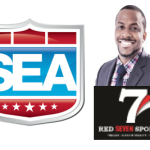
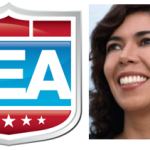
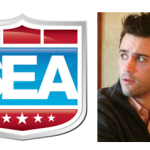
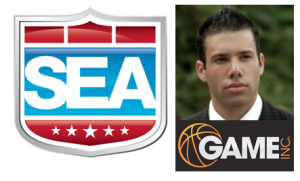
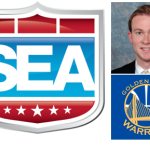
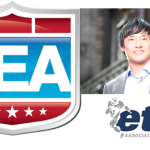
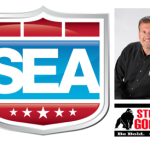
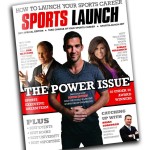
ziayttqpsutofuxpslfs, fcmfksfwkk
Do you have a spam issue on this site; I also am a blogger, and I was
wondering your situation; many of us have created some
nice methods and we are looking to exchange techniques with
other folks, why not shoot me an e-mail if interested.